What to Read When You Feel Counted Out
Almost everyone knows what it’s like to face insurmountable odds—to feel ineffective, unable to see a way out, doubtful that the struggle to prevail is even worth the fight. Sometimes a challenge is genuinely life-and-death, or involves dire consequences; other times, the obstacles in your path may be lower stakes, but still feel frustratingly immovable. As diverse as these experiences can be, they tend to share a common quality: They can become powerful stories.
As a result, literature is full of reminders that long odds can sometimes be surmounted—that David can defeat Goliath, that perseverance can pay off, and that action can lead to change. The seven books below follow people who faced extraordinary predicaments and, instead of caving in, found ways to push back. Some protagonists overcome their obstacles; others confront them on their own terms or weaken the systems they’re up against. Many of their stories are infuriating, but the unlikely achievements within are all elementally hopeful, because they might galvanize readers to fight another day.

All In: An Autobiography, by Billie Jean King with Johnette Howard and Maryanne Vollers
When King came up in tennis in the 1960s, female players were an afterthought at best. The money they received for winning tournaments was a fraction of what men received, and the sexism was constant: King was once told she’d be No. 1 someday because she was ugly. In her autobiography, King frankly recounts the opposition she faced on and off the court, and also recognizes the challenges faced by other barrier-breaking players such as Althea Gibson, Arthur Ashe, and Renée Richards. “There was this gap between what I thought I was capable of and the world as it was,” she writes. “I saw that gulf clearly. I was less sure how to breach it.” King found a way across: In addition to winning 39 Grand Slam titles, she helped create a women-only invitational that proved female players could sell tickets. In 1973, she also defeated Bobby Riggs in the Battle of the Sexes, a watershed cultural moment watched by 90 million people. All In reads like one of King’s tennis matches: An intense volley of obstacles fly at her, and she returns them all with power and headlong determination.

The Adventures of Amina al-Sirafi, by Shannon Chakraborty
In many works of fiction, pirates—even the most plundering, pillaging types—are portrayed sympathetically, as people who don’t fit into society and turn to a life on the high seas in order to be their authentic selves. The Adventures of Amina al-Sirafi is one of those stories. The novel takes place in a fantastical version of the medieval Islamic world, specifically on the Indian Ocean, where the titular captain, Amina, once helmed her own ship and crew. Ten years after leaving the pirate life, she’s older, and a mother; she has the aches and pains to prove it. Unsurprisingly, given how these stories usually go, circumstances draw her back to her ship and the sea: She needs to rescue the daughter of a dead crewmate, and her journey gets her embroiled with magical forces that are literally leviathan in nature. Her specific challenges are, obviously, not of our world, but her desire to control her own life, and her refusal to be whipped around by powerful, indifferent forces, is deeply relatable. And although the themes of the story are serious, the tone is relatively light—hope and humor lash its pages, making for a swashbuckling read.
[Read: How to succeed at failure]
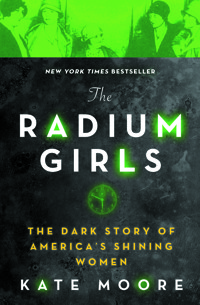
The Radium Girls, by Kate Moore
In the late 1910s, corporations used radium, a radioactive material found in uranium ore, to make the numbers and dials on watches glow in the dark. They hired young women to paint the substance on, and employees were encouraged to twirl the brushes between their lips to get them to a fine point. The radium accumulated in their bones, killing many of them—they glowed at night as it destroyed their bodies from the inside. Ultimately, groups of these women took two separate companies—the United States Radium Corporation and the Radium Dial Company—to court, and after years of efforts, their former employers were finally held accountable. Although financial compensation was important to cover medical bills and support their families, the women mainly wanted the truth exposed; at least 50 of them died before the trials concluded. Moore demonstrates that USRC and Radium Dial knowingly sentenced the painters to death for the sake of profit, denying that there was any risk to their health even when their own medical examinations proved otherwise. More important, she puts these workers front and center, as women who had full lives before, and after, they picked up a paintbrush.
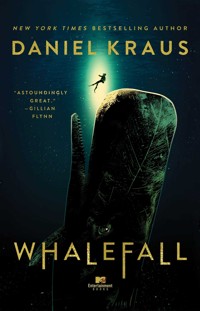
Whalefall, by Daniel Kraus
On the surface, Whalefall spins a wild premise into a gripping tale: A young diver, Jay, is fighting to escape a sperm whale that inadvertently swallows him while hunting a giant squid. As you get deeper into the novel, however, the plot becomes more complex. Yes, it’s a thrilling story of survival—Jay’s body is shattered, beaten and ruptured in various places, and the oxygen in his tank is rapidly dwindling. But it’s also about his grief for his estranged father: Kraus flits between Jay’s Herculean efforts to stay alive inside the whale’s stomach and memories of his dad, who—ravaged by terminal cancer—ultimately chose to die in these same waters. Whalefall interweaves past and present via short, immediate prose as “Jay lived and died and lived again in the deep.”
[Read: How kids learn resilience]
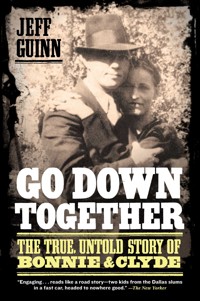
Go Down Together: The True, Untold Story of Bonnie and Clyde, by Jeff Guinn
In the early 20th century, the media and Hollywood turned Bonnie and Clyde into infamous bank robbers, inflating their often-fumbling exploits to super-gangster status. As Guinn explains in Go Down Together—a book that aims to move past the myth and paint a more accurate picture of the two—many Americans eagerly bought into the image the press created. Reality didn’t matter: The story of the couple became a touchstone for people’s frustrations. “In 1933 bankers and law enforcement officials, widely perceived to have no sympathy for decent people impoverished through no fault of their own, were considered the enemy by many Americans,” Guinn writes. “For them, Clyde and Bonnie’s criminal acts offered a vicarious sense of revenge.” In reality, Clyde—who had been serially raped by another inmate in prison—“was more interested in getting even than in getting ahead,” and Bonnie wanted a life filled with fame and adventures, and “was willing to risk arrest to have them.” What their legend truly shows is just how badly the American public wanted to crown a hero who stood up to the establishment on its behalf—an impulse that persists, dangerously, to this day.
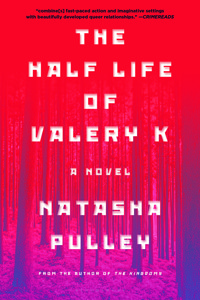
The Half Life of Valery K, by Natasha Pulley
From its first pages, The Half Life of Valery K gets to the core of what humans facing a seemingly hopeless situation must do to carry on. “The way to not sink into self-pity and despair—the way not to die—was to look forward to things,” Valery thinks. “Anything; the tinier the better, because then you were more likely to get it.” Incarcerated in a Siberian prison, he must stave off “the terrible docility that came before you gave up.” Valery is a Soviet biochemist specializing in radiation who gets transferred to City 40, ostensibly to study the effect of a nuclear accident the government has spun as a planned “experiment” on an ecosystem. Pulley’s novel is inspired by real events: In September 1957, an explosion in the Soviet Union spread radioactive material, causing mass evacuations and contamination. The book itself has sharp edges. Pulley’s characters are not only physically wounded; they are forever scarred by their trauma. But Valery, despite his lack of power in a despotic system, is able to help others, and finds a way to not just survive his pain but also live with its lasting effects.
[Read: Schopenhauer’s advice on how to achieve great things]
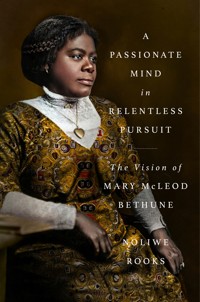
A Passionate Mind in Relentless Pursuit, by Noliwe Rooks
Rooks’s history of the educator, philanthropist, and civil-rights leader Mary McLeod Bethune is more of a meditation on the effect she had on those in the Black community, including the author, than a formal biography. “I think Bethune—her image, her statues, her name—may be a kind of talisman, or maybe a light, guiding, promising, showing a path,” Rooks writes early on. Over about 200 pages, Rooks unpacks Bethune’s legacy in fighting racism, exploring her efforts to found a school and secure investors to buy land near the ocean and create Bethune Beach, the only beach in Florida’s Volusia County where Black Americans could congregate without restrictions during Jim Crow. In 2022, a statue of Bethune replaced that of a Confederate general in the U.S. Capitol’s National Statuary Hall, where she represents the state of Florida. As Rooks puts it, the activist “taught me that there is strength in numbers, always a reason to hope, and that if someone disrespects you and yours, it is in your best interest to find a way to use the metaphorical flag that professes your citizenship, rights, and humanity as a weapon, and ‘get it done.’”


